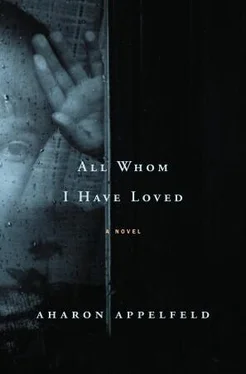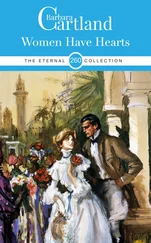So Father talks, and the more he talks, the simpler the sentences become, and even I understand them. Kuba listens, large tears flowing from his wide-open eyes, but he utters not a word.
And later, too, when we accompany him to his cart, Kuba does not ask anything. He embraces Father, kisses him, and says, “We'll see each other soon.” But my heart tells me that we will not see him again.
Then the skies cleared and spring settled in. Water from melting snow filled the gullies and flooded the roads. Father rejoiced at the sight of it, and again he began to devise plans: Mother would recover, and we would take her to Czernowitz. There were good doctors in Czernowitz, doctors who stuck to medicine and didn't dabble in faith. I, too, began to recall the handsome streets and the splendid cafés in the center of town.
Twice a day we would come to the monastery, stand by Mother's bed, and gaze at her as she slept. Sometimes it seemed that she was about to wake up. This was a mistake; from day to day, her deep sleep only became deeper, and her expression never changed. The monastery doctor, a converted Jew and a monk, told Father, “Everything is in the hands of heaven. A man may decide whatever he wants, but in fact the weighty decisions are made elsewhere.” Father apparently did not expect to hear such a diagnosis from a doctor and asked no further.
We were outside for most of the daylight hours, buying provisions from peasants and preparing meals next to a well or in a grove. Sometimes we would light a bonfire and roast potatoes. Roasted potatoes with butter and cheese is a delicacy. Father sipped from his flask but did not curse. He gazed at the landscape and said, “One of these days I'll come back here to paint these marvels. God has presented us with such refined forms here.”
The onset of spring had apparently calmed him somewhat, and he went back to reading the works of Saint Augustine, which he had brought with him in the duffel bag. The rest of his books had been left in boxes with Victor. When Father remembered them, he'd say, “One of these days we'll need to fetch them; they're as vital to me as the air I breathe.” Even his smoking had changed slightly; although he still lit one cigarette after another, he did not smoke them with the same intensity as in the winter.
In the afternoons, Father sat with the monks. Mostly he spoke and the monks listened. When Father recited long passages from the New Testament, a kind of youthful wideeyed wonder filled their faces, as if they were hearing something that their ears were not used to hearing. Once I heard him praising the mosaics and ancient icons in the monastery. He said, “This is great art, and the time will come when students at the academy will rush here to learn from these pure-hearted artists the meaning of true yearning for God.”
In the evenings we returned to the inn. The roads were bad at this time of year and had so many potholes as to be practically impassable. Few people came. Sometimes Father sat with the innkeeper, and they talked of bygone times. One evening the innkeeper said, “Years ago, many Jews lived here, and they would worship God. In this past generation, the children threw off the yoke of their religion and the yoke of their forefathers and fled to the big cities. The fathers still lived out their days here, but eventually they vanished from the world. Now there are very few Jews in the region, the synagogues are on the verge of collapse, and there is no one to repair them.”
Then he told Father about the festivals and customs of the Jews in this place. On the Day of Atonement all the men would wear white clothes, and they looked like creatures from another world. “It's a pity that they've left us,” he added.
“They've left because they weren't wanted,” said Father.
“We loved the old Jews,” said the innkeeper, a faint smile spreading across his lips.
“And the pogroms?”
“The old Jews were used to pogroms. People beat them and they accepted their suffering with love.”
“You make it sound like a law of nature.”
“If you like—”
“That's one crazy law!”
“Look, anyone who does not recognize the divinity of Jesus deserves to be beaten. They have to be beaten for their stubbornness.”
“That's a skewed way to look at it.”
“We think it's the right and just way to see it.”
“It's a distortion.”
“Why do you say distortion?”
“Actually, we should say that it's a wicked distortion.” Father's anger flared up.
I was afraid of his anger and of his trembling hands. It seemed that in a moment he would get up and hit the innkeeper. “It's a wicked distortion,” Father repeated angrily, and we immediately went up to our room. Father took off his clothes quickly, put on his old pajamas, and got into bed. I did not know why he had held himself in check this time. Father doesn't usually hold himself in; if he hears malicious talk or witnesses an injustice — not to mention hearing something anti-Semitic — he does not hesitate but immediately lashes out. This time he restrained himself. His restraint pained me, and I was so stirred up that I couldn't sleep for the entire night.
Early in the morning the bells of the monastery began to ring, and Father made me get dressed in a hurry. The path to the monastery was mired in mud. We slushed through and arrived there soaked. The monk at the entrance greeted us differently — with a deeply bowed head.
“What's happened?” asked Father.
The monk bowed even lower and did not utter a word. The other monks immediately gathered to his side and surrounded us.
“What's happened?” Father raised his head.
“Henia passed away early this morning,” the monk said quietly.
“What?” said Father, his jaw dropping, as if he did not understand.
We all turned to go down the corridor and from there to the infirmary. Mother lay in the bed, propped up by a pillow, her white face suffused with an eerie calm. Father seemed to crumble all at once, and the monk grasped his forearm and held him. Suddenly the bells sprang to life again and began to toll; the sharp peals made me dizzy.
“What?” Father repeated.
“Henia is no longer suffering,” whispered the monk.
In the next chamber the choir burst into song. It was a soft song and it washed over me with a kind of painful pleasantness. Father shrugged, as if refusing to accept the gift that had been offered him.
“Henia is suffering no more.” Now the monk spoke out clearly.
Father grasped my hand and turned toward the corridor. The monks did not stir. We walked down the corridor into the entrance hall. The monk who had recognized Father's name bowed. Father did not thank him. We left immediately to go for a walk around the monastery.
The sun stood full and round in the sky and poured its light upon us. The ground was muddy, and it was hard to walk. Father went ahead; when he had gone some way, he noticed that I'd fallen behind and came back for me. I had become tired and asked him to stop. He did, and lit a cigarette. When we had completed the circuit, we stood at the entrance but did not go inside.
“We've arrived,” said Father, as if we had carried out a mission.
We returned to the inn, and Father downed a few drinks and chatted with one of the drunks. The innkeeper, who knew everything, came up to Father and said, “God gives and God takes away.”
Father didn't agree. “What's this giving and taking?” he said. “That's just haggling. If you give, you give; you don't take back. Victor, for instance, gave and did not take. He always gave.”
“Which Victor are you talking about?”
“Victor from Bucharest — good, loyal Victor.”
Читать дальше












